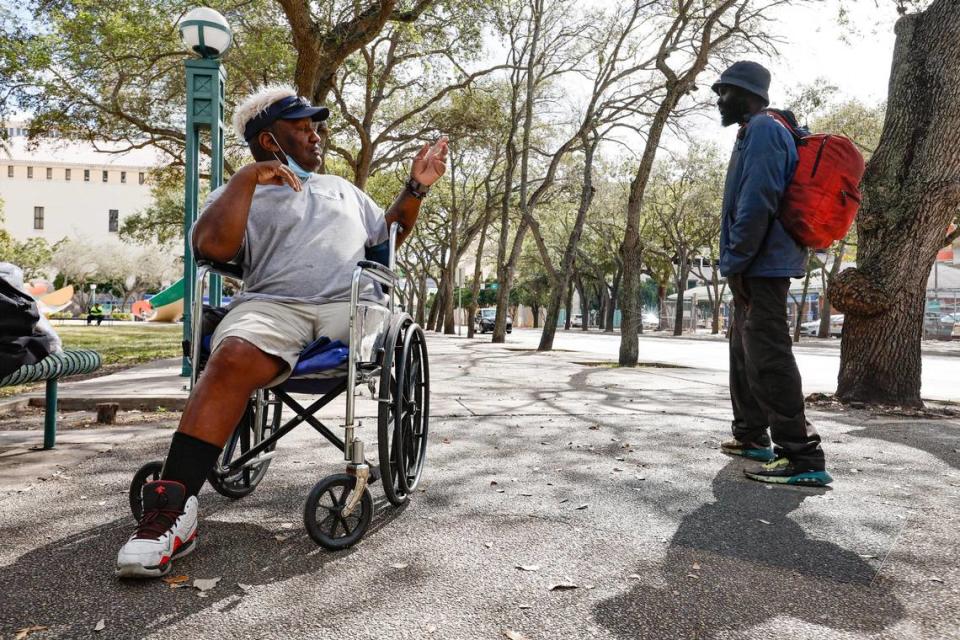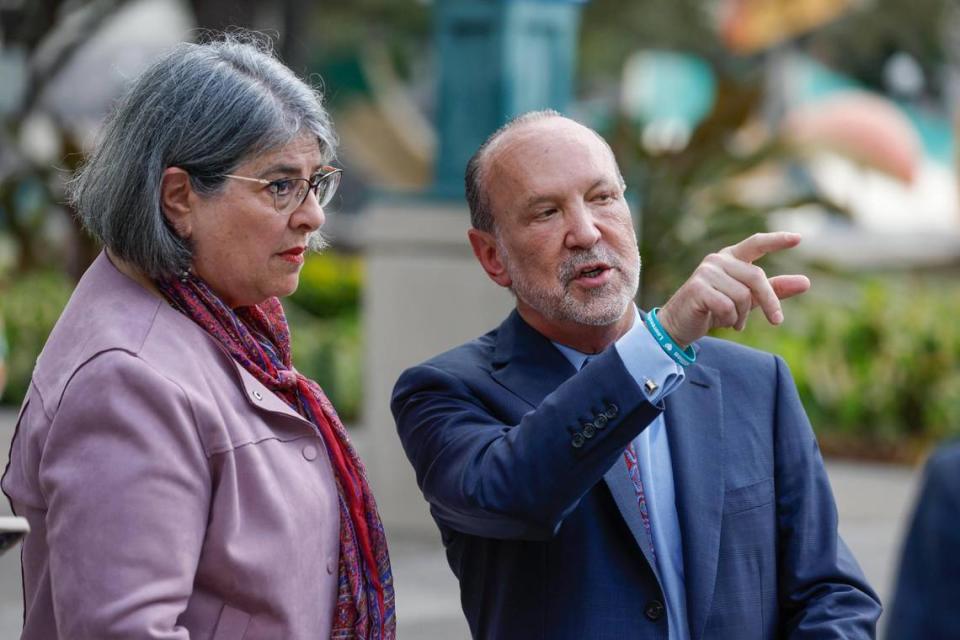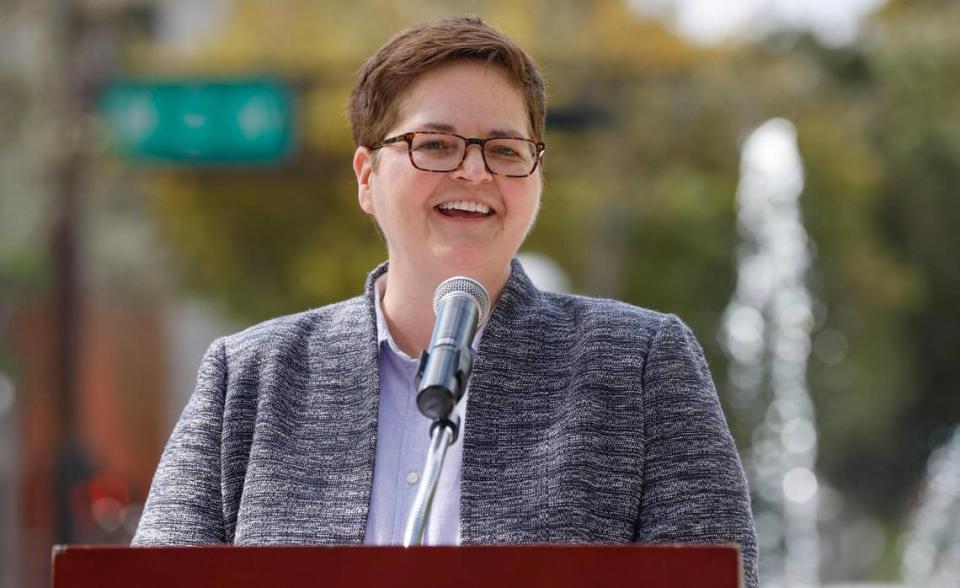Miami’s homeless crisis worsens, but there’s a wave of money coming to help
The homeless population is growing in Miami-Dade County, but so is the budget to provide new emergency beds and long-term housing.
On Thursday, a senior housing official in the Biden administration came to Miami to announce a $21 million award over three years — a 20% increase over the federal money in the county’s current budget for homeless services.
The award by the federal Department of Housing and Urban Development (HUD) was one of the largest for a metropolitan area announced as part of a $315 million push to help people across the country living on the streets.
READ MORE: Homeless chief takes ‘hard line’ on shelter for migrants in Miami, calls it feds’ job
“This was competitive,” Marion Mollegen McFadden, a deputy assistant secretary at HUD, said during an announcement event outside the county government complex at the Stephen P. Clark Center in downtown Miami. “And Miami-Dade County did well.”
The backdrop for the announcement happened to be an emblem of Miami’s challenges with people experiencing homelessness. The Clark Center campus is a popular place for people to spend the night on the county benches by the fountain and on the covered sidewalks off the main and side entrances.

As McFadden spoke, Lazaro Ramos, 70, had the lettuce box by him he uses for a bedroll, seated about a dozen steps from the microphone. “I’m sleeping here,” he said from the concrete ledge ringing the fountain. “I get no help.”
Nearby, on a bench facing Northwest First Street, Charles Jennings sat in a wheelchair, a Greyhound Lines tag hanging from a handle.
“I’ll sleep in this chair,” he said of his plans that evening. His wife, Linda, sat on a bench next to him, flattening a red flannel shirt she pulled from a bag. “I’m shaking the dust out of it,” she said. Both in their 70s, the couple said they recently arrived by bus from Ohio and had nowhere to go.
The federal grant announced Thursday will beef up spending on short-term housing options for people living on the streets.
Over three years, HUD is providing an extra $7 million on rent vouchers and another $10 million for Camillus House, a Miami shelter. The remaining dollars go to various homeless programs across Miami-Dade, according to a county summary.

Ron Book, the chairman of the board of the Homeless Trust, which oversees Miami-Dade’s programs for combating homelessness, said the extra $7 million a year should support several hundred beds in a county where more than 1,000 people are listed as experiencing homelessness.
The 1,068 people listed on the county’s January census of the homeless population was up 9% from 2022’s count. Add in people living in emergency shelters like Camillus, and the growth rate doubles to 18%.
Book said while there is some availability in short-term shelters, Miami-Dade can’t provide places to sleep for more than 1,000 people listed in the census.
Bed space doesn’t always address the issue, with some people resisting the dormitory conditions and restrictions that can come with being granted shelter beds.
Book said the Jenningses both agreed to shelter offered by social workers after the event, but that Ramos ultimately declined a bed for the night.
Along with the new federal money, Miami-Dade will have a one-time injection of local tax dollars for construction of new county-owned residences for the homeless population.
Book said the Homeless Trust will be spending more than $40 million to purchase multiple buildings across Miami-Dade to provide housing, including residences for elderly people at risk of homelessness.

The funding came from a one-time payment of $25 million from Miami-Dade’s general fund in the 2023 budget, part of the county’s expenditures of federal COVID relief dollars. Another $15 million came from Miami, and $1 million from Miami Beach.
The Homeless Trust’s $90 million operating budget doesn’t use property taxes but relies on federal funding and the 1% tax Miami-Dade adds on restaurant checks to fund services for homelessness and domestic violence.
Book said the construction dollars will let Miami-Dade make a dent in the thousands of people who come in and out of shelters and are living on the streets each year.
“If we don’t find permanent housing that we own,” he said, “we can’t move people out of the shelters, and we can’t move more people off the streets.”
This article was updated to correct Miami Beach’s financial contribution to new homeless facilities.


